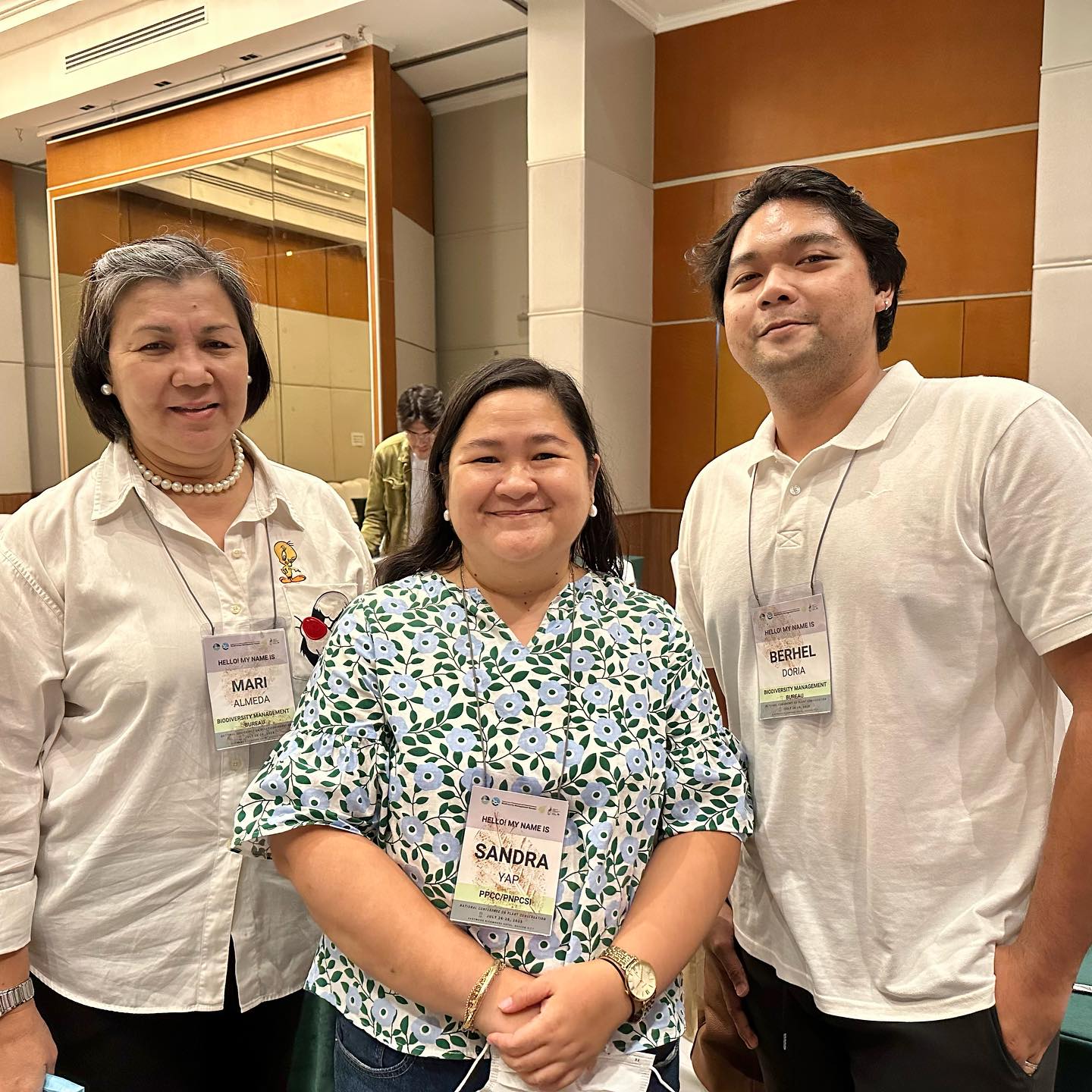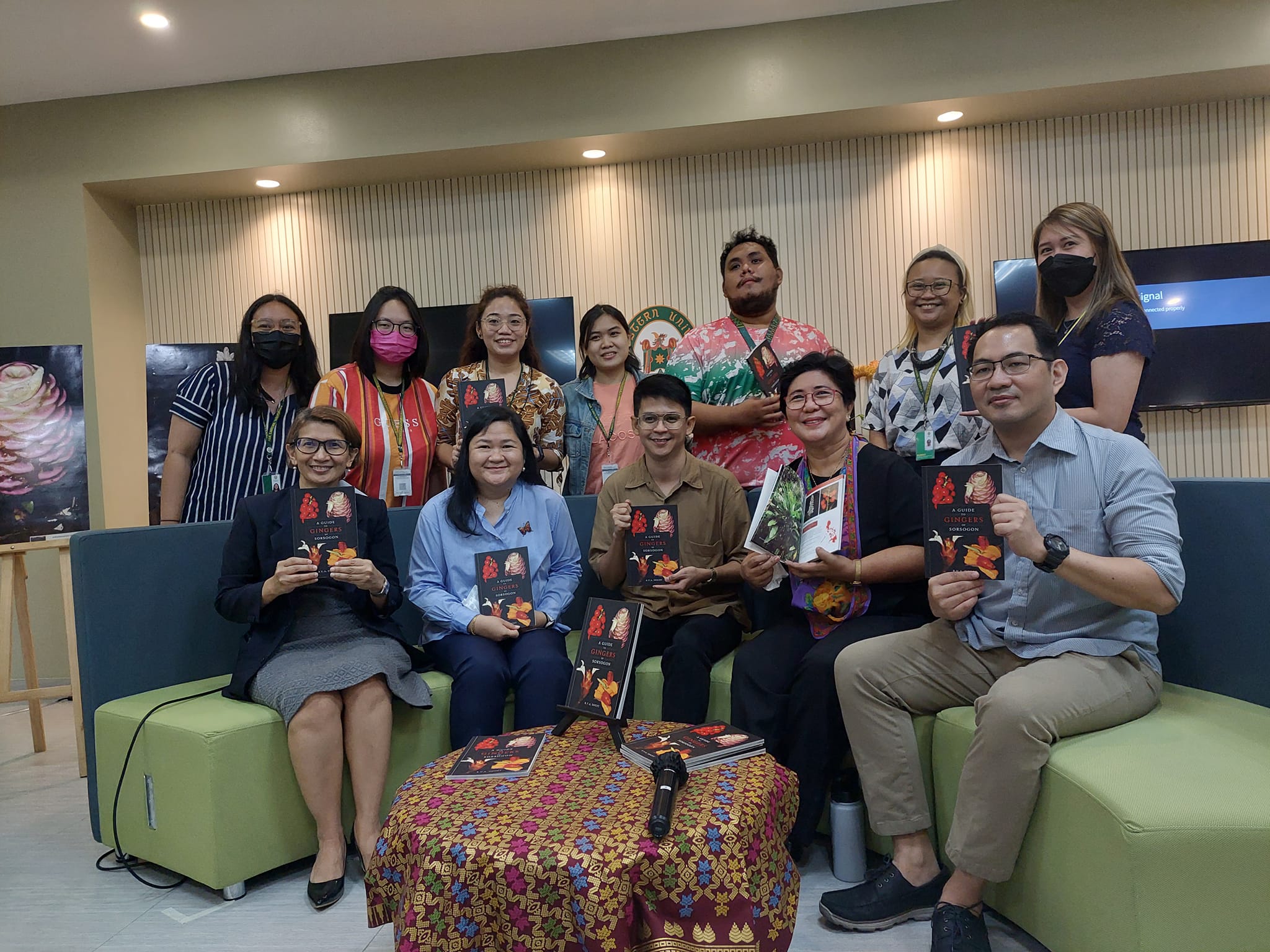
Imagine you’re in a forest. You are lost, but you don’t panic. You don’t fear because you see Sandra L. Yap. She beckons to you with a wide, welcoming smile on her lips.
“Trees don’t lie,” she says. Your mind translates this to mean that she knows her way around here and that if you stayed just a bit longer and close enough to her you would eventually know your way around here, too.
***
Sandra is curious about everything regarding plants.
“I am curious about how the forest maintains itself, how it survives,” she said.
This curiosity about everything regarding plants did not begin for her at an early age. True, she was a scholar at the Philippine Science High School, where she signed a contract to pursue a collegiate program in the sciences. Yes, she comes from a family of mostly health care professionals—Dad, a doctor; Mom, a pharmacist; most siblings, doctors and nurses.
Sandra was about ready to go to medical school, even reviewing for the National Medical Admission Test—notwithstanding her fear of needles or the sight of blood. She was also VP of her undergraduate pre-med society at the University of the Philippines, Diliman in her senior year.
It was when she volunteered for a Smithsonian funded project in the Northern Sierra Madre Natural Park as its botany research associate that her “love for [her] forest” became palpable and urgent. This love would soon bear fruit as she co-authored “Forest Trees of Palanan, Philippines: A Study in Population Ecology.”
Sandra’s “love for [her] forest” was truly serendipitous.
“I had taken extra classes on ferns and mosses,” among other undergraduate courses in plant development biology without then knowing why, she recalled.
“Plant development,” according to John Heslop-Harrison, “[is] a multiphasic process in which two distinct plant forms succeed each other in alternating generations.”
A year after her botany research work with Conservation International-Philippines, Sandra worked as research associate and database manager at the Center for Tropical Forest Science-Arnold Arboretum in Harvard University.
Earlier she was invited to a conference of the Association for Tropical Biology and Conservation in Panama. While she met the world’s who’s-who of biology and conservation, she observed them to be “normal people.”
“They sing karaoke!”
Sandra sent applications for studies abroad after she scored well in the Graduate Record Examinations. A professor at University of Michigan, Ann Arbor had space for Sandra in a lab so she was accepted.
“I suffered from imposter syndrome,” Sandra admitted, but soon she assimilated balance of ego. “I learned to stay in my lane; I knew what I was doing.”
She admired the quality of teaching of her UMich professors.
“They taught me how to answer questions,” said Sandra. “Now as I study the flora I seek answers in the forests.”
She actively engages with the Department of Environment and Natural Resources-Philippine Plant Conservation Committee and the Philippine Native Plants Conservation Society. This community service on Sandra’s part is her “love language” for the country’s forests.

Robert Lusardi, Neal Williams, and Dirk Van Vuren of the University of California, Davis define conservation ecology as “the branch of ecology and evolutionary biology that deals with the preservation and management of biodiversity and natural resources.”
Sandra describes her lifework as “everything about the forest.” She definitely agrees with Lusardi, Williams, and Van Vuren that conservation ecology “is a discipline that is emerging rapidly as a result of the accelerating deterioration of natural systems and the worldwide epidemic of species extinctions.”
***
“Did you know that we have acorns in the Philippines?” Sandra asks you.
“No,” you answer in surprise.
Later, after you have stayed just a bit longer and close enough to Sandra in the forest you will have seen in your mind’s eye University of Utah’s Eric A. Rickart’s “Mossy Forest Oak Trees,” where he shows that “acorns often litter the ground at Mt. Bali-it, Kalinga.”
– – –
Sandra is a research fellow of Far Eastern University’s Institute of Arts and Sciences. She is also the curator of the FEU Herbarium. She edited Rudolph Valentino Docot’s “A Guide to Gingers of Sorsogon,” which won the most recent Gintong Aklat Awards-Science and Technology category.